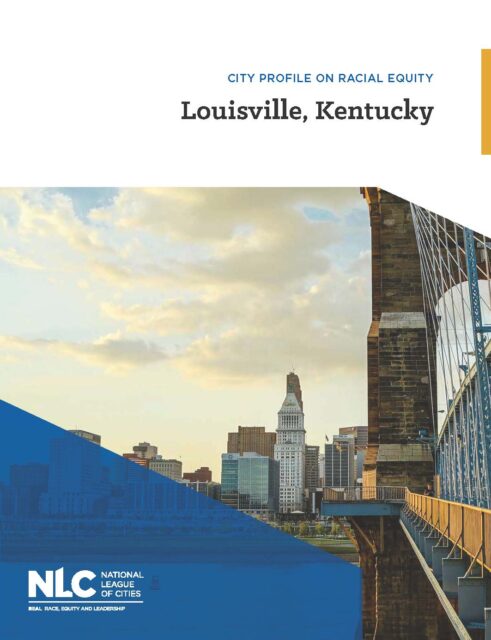Erasing the Historical Lines of Division Drawn by Law & Practice
Strong mayoral leadership and a robust foundation of data helped Louisville Metro, the metropolitan government for the combined Louisville/Jefferson County area, begin a process to address the modern impacts of segregation policies. To do this, the city acknowledged past mistakes and facilitated community dialogue to build a vision of a more equitable Louisville.
This city profile is part of a larger series sponsored by the W. K. Kellogg Foundation.
Key Takeaways
Acknowledging History of Redlining
A public reckoning with the current local impacts of racially discriminatory policies and practices like redlining and urban renewal is a practice that cities across the nation can learn from.
Creating Innovative Platforms.
Building on a University-developed story map, the city used innovative platforms like community dialogues, social media and podcasts to bring the community into a deeper understanding of how history impacts what the city looks like today.
Using Public Opportunities to be Explicit: These opportunities include the ongoing engagement of Mayor Fischer in leading with an explicit naming of structural racism and building knowledge and skills amongst city staff and the community to publicly engage with racial equity and move towards healing.

